
Main Page |
3D Computer Modelling of Speaker Systems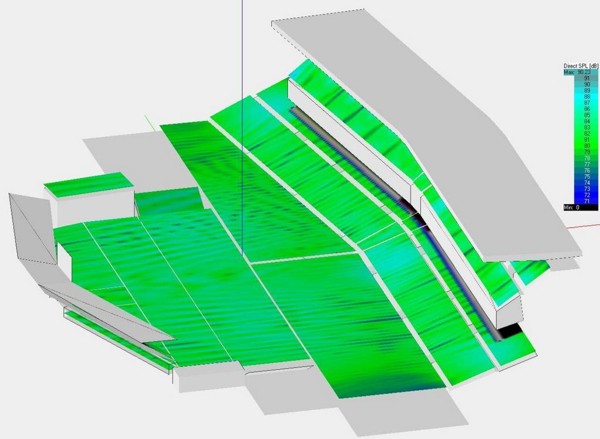 Acoustical design of many complex or specialized venues is done with the aid of 3D computer room modelling. While the accuracy of computer room modelling is ultimately limited by the detail included in the model, we can still obtain useful information faster than we ever could with a pencil, paper, ruler and calculator. We also get the information without the difficulty and expense of producing large physical models (which have their own problems with accuracy). This allows us to apply modelling techniques to smaller church and theatre projects and still get relevant information. By combining this information with our experience in real rooms, we are able to design acoustical treatment, determine the optimum placement and shape of reflecting surfaces, develop accurate sound system designs, and we are also able to "listen" to the computer room models through a process called auralization. Using this tool, we are able to audibly demonstrate the problems associated with excess reverberation time, or late reflections, or poor sound system coverage to people with no formal understanding of acoustics. This is a very useful demonstration for the acoustic layperson such as architects and members of building committees who may not have a conceptual understanding of the effect of changes in room shape or the elimination of acoustical treatment. In this way, we are able to present a reasonable approximation of the magnitude of these problems. We must stress that the model is only a model, and not the room itself. There are many claims for 100% accuracy of these computer models by manufacturers and contractors, but like any computer simulation, they are limited by the accuracy and quality of the input information (in computer terms GIGO, garbage in=garbage out). Computer models are a useful tool to help a knowledgable designer work faster, but all model results must be scrutinized for validity. 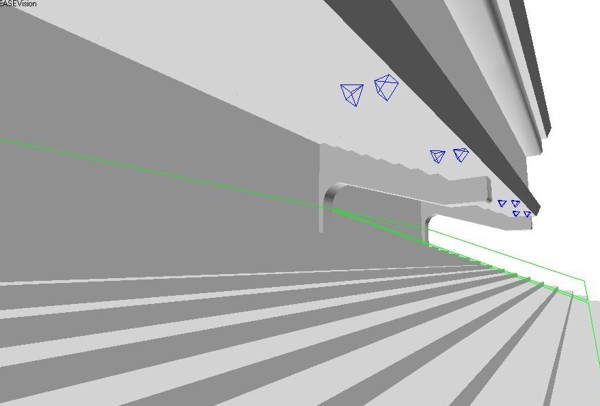 The limitations are accurate methods of modelling complex behaviour of sound waves at the room boundaries, and the immense amount of computer processing time required for calculating even simple models. We now have much faster computers, but we still have the same limitation in modelling mathematically complex acoustical behaviour. As a result the computer models all work with some convenient set of assumptions that limit the accuracy. By comparing the calculated results against our experience with real-world conditions, we are able to draw reasonable conclusions from a computer model and feel confident that our information is valid and applicable.
For unusual spaces or applications, the computer modeling can reveal a number of issues the client may not have considered, and that can impact the cost or capabilities of the system. Always better to find out about potential issues long before a system is purchased and installed. 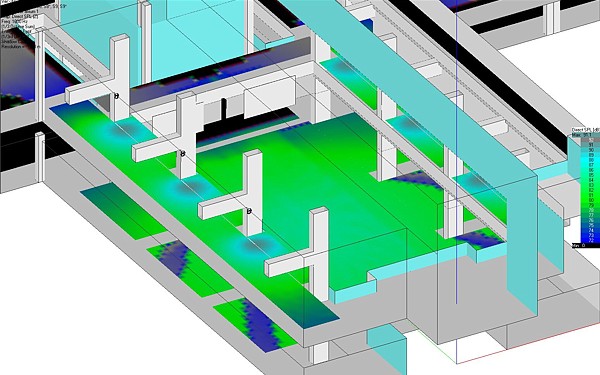 We also make extensive use of computer models for outdoor sound propagation studies in outdoor sound system design. 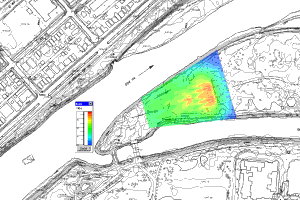 |
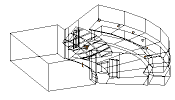 Coverage Modeling
Coverage Modeling